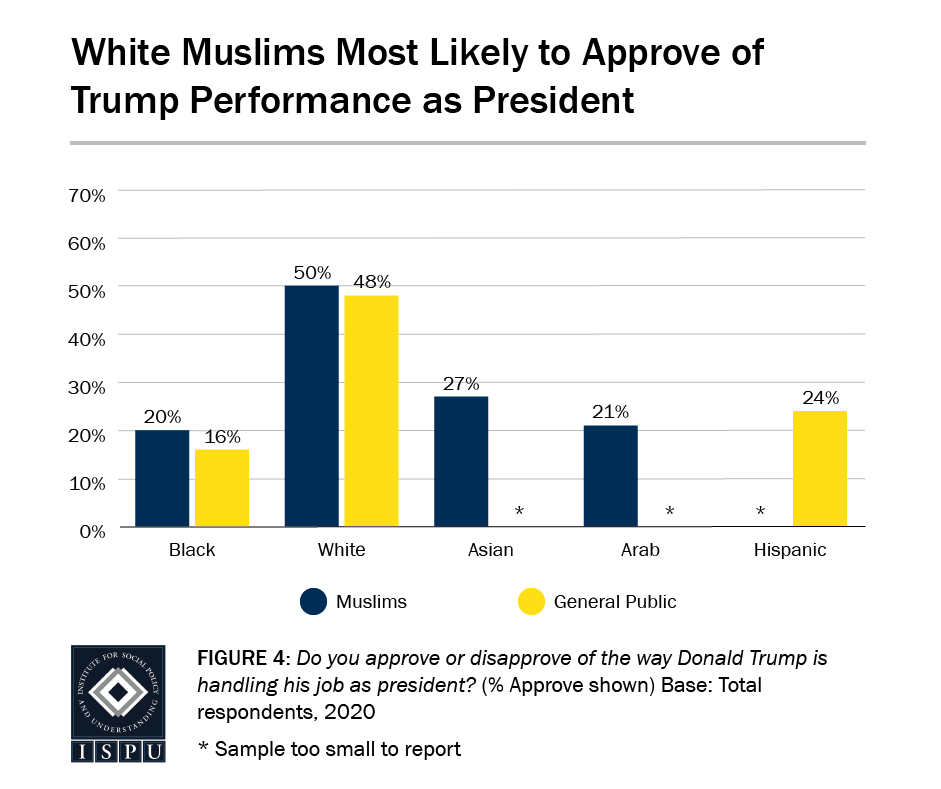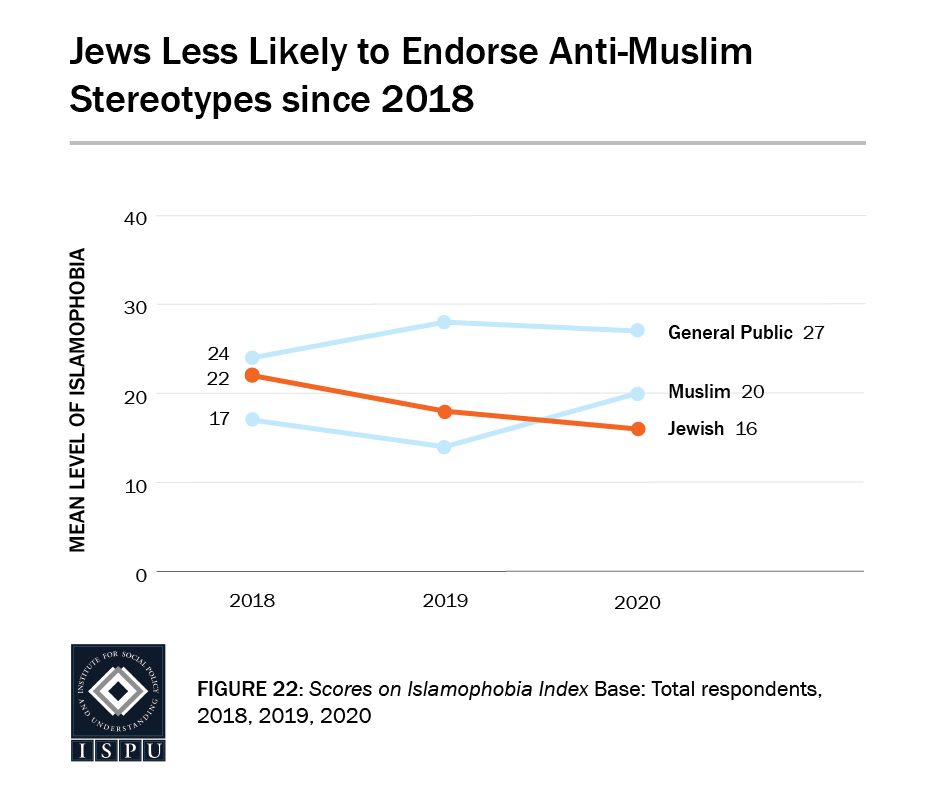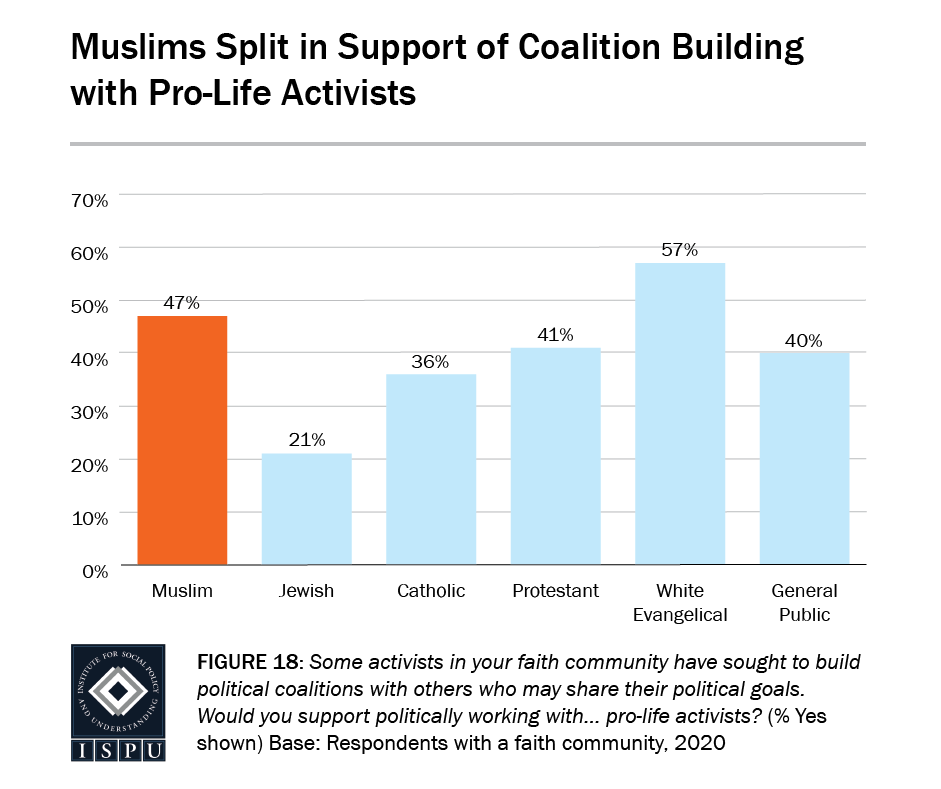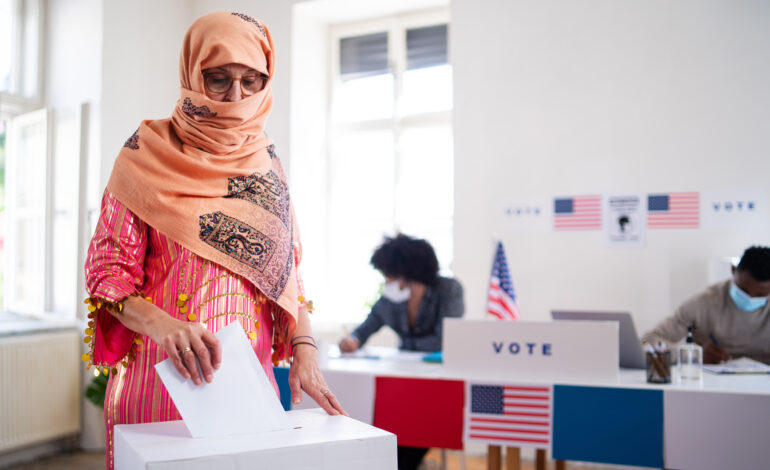WASHINGTON, D.C. — This week, the Institute for Social Policy and Understanding (ISPU) published its fifth annual poll, analyzing attitudes and policy preferences on issues concerning American Muslims across faith and non-faith groups.
The American Muslim Poll 2020: Amid Pandemic and Protest covers important issues such as Muslim American civic engagement, Islamophobia among various groups of Americans society and political coalition building.
Every year, the comprehensive poll teases out nuances around the political and social values shared by the diverse Muslim American population, and in comparison to other faith groups and the general public. Like always, the poll shows a largely engaged Muslim population, though political leanings among Muslims may vary.
This year’s poll also shows how these political attitudes and preferences run counter to the perception of Muslims favoring conservative politics due to religious affiliations. The poll also looks at how discrimination remains a presence in the life of many Muslims. A breakdown of some of the key findings of the poll appears below.
The Arab American News spoke to ISPU Director of Research Dalia Mogahed about some of these key finding earlier this week.

Dalia Mogahed, director of research at ISPU
“One key takeaway from this poll is that American Muslim voter registration has steadily climbed over the past five years,” Mogahed said. “In 2016, only 60 percent of eligible Muslim voters were registered to vote. This year that number is 78 percent.”
Mogahed said this significant climb is a testimony to the efforts of groups pushing GOTV (Get Out the Vote) campaigns and specifically targeting Muslim voters.
In 2016, the ISPU found that while 60 percent of voters were registered by January of an election year, 81 percent said they intended to vote. The ISPU calls this gap of 21 percent of voters the “Insha’Allah voters”, those who intend to vote but have not registered to do so. In 2020, 78 percent of eligible voters were registered to vote by March and 81 percent planned to vote, meaning only 3 percent were “insha’Allah voters”; a significant reduction.
Still, 15 to 19 percent of Muslims who are eligible to vote have no intention of voting.
“That’s not insignificant,” Mogahed said. “When this group that does not intend to vote is asked why, the responses are that they don’t like any of the choices, or they don’t think their vote matters. This is the group that has to be engaged in the next chapter of American Muslim development.”
Perhaps surprisingly, the approval of President Trump among Muslims has doubled from 2019, and was right below what Jewish Americans reported, when polled right around the country’s coronavirus lockdowns
Mogahed said, however, that voting is not the only way to gauge civic engagement; volunteering for campaigns, attending political events such as town hall meetings and contributing financially to campaigns make a difference. The poll shows Muslims in these exercises; Muslims are either on par or exceed the general public.
Perhaps surprisingly, the approval of President Trump among Muslims has doubled from 2019, and was right below what Jewish Americans reported, when polled right around the country’s coronavirus lockdowns.
“There are a few possibilities behind this increase,” Mogahed said. “One is a “rallying around the flag” phenomena, where the country is going through some sort of a hardship, like a pandemic, when people might see the leadership more positively.
“The Muslim community is not uniform in their approval of the president and there are stark differences along racial lines within our community,” Mogahed added. “Muslims who identify as White are similar to White Americans of other faith backgrounds in their level of approval.”
50 percent of White Muslims approve of Trump’s performance, compared to non-White Muslims, who reflect perceptions of the president among non-White Americans in the general public.
Some key findings
Civic engagement:

- Muslim approval of President Trump doubled since 2019, but varies across Muslims of different backgrounds
- Muslims least likely faith group to support Trump in the 2020 election, most likely to support Sanders (when polled earlier in the year)
- Muslim Trump supporters are similar to Trump supporters in the general public
- Muslims are more likely than the general public to express satisfaction with the direction of the country
- Muslim voter registration continues to climb, but remains lower than other faith communities
- Segment of Muslim voters who intend to vote but have not yet registered shrinks from 21 percent (2016) to 3 percent (2020)
- Muslim political activity exceeds general public’s
- Jews (42 percent) were more likely than all other groups except Protestants (35 percent) to select Joe Biden as their candidate of choice (compared to 22 percent of Muslims)
Islamophobia:

- Politics, not religion, predicts Islamophobia
- White Muslims reporting regular discrimination are more likely to have Islamophobic views
- Muslims’ frequency of religious discrimination have held steady for five years, with 60–62 percent of Muslims reporting that they faced discrimination in the year prior to the survey.
- In 2017, 38 percent of Jews reported experiencing religious discrimination, compared with 58 percent in 2020, bringing them on par with Muslims
- Jewish opinions of Muslims have improved over the past three years
- The proportion of Muslim families reporting that their child has faced religious-based bullying in 2020 is nearly double the level of families in the general public (51 percent among Muslims vs. 27 percent among the general public)
- Muslims uniquely experience institutional religious discrimination, including at the airport (44 percent of Muslims vs. 2 percent of Jews and 5 percent of the general public); when applying for a job (33 percent of Muslims vs. 5 percent of Jews and 8 percent of the general public); when interacting with law enforcement (31 percent of Muslims vs. 2 percent of Jews and 8 percent of the general public) and when receiving healthcare (25 percent vs. 5 percent Jews and the general public)
Political coalition building:

- Muslims are most likely group measured to favor their faith community building alliances with Black Lives Matter (BLM)
- Muslims split in support for coalitions with political conservatives on religious liberty issues and pro-life activists
- Muslims on par with Catholics in level of support or opposition to LGBTQ alliance
- Among Muslims, political leanings predict coalition preferences in predictable ways, but religious practice has no significance
The full poll is now available on the ISPU website at: www.ispu.org






Leave a Reply